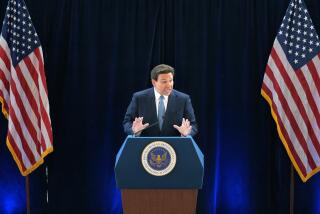Letters to the Editor: I helped write UCLA’s high school data science course. This is what our critics miss

To the editor: As a co-author of the UCLA high school data science course maligned by UC Davis professor Norman Matloff in his Times op-ed article, I agree with him that data science is a field in which even professionals make serious errors. That’s why data science education must begin early and not be treated as a mathematical afterthought.
Mathematics is only one component of data science. Almost three decades of research have shown that students can and should learn important statistical concepts — the foundation of data science and the emphasis of our course — before learning more traditional mathematics.
Matloff’s selective context might lead readers to reach the wrong conclusions. He doesn’t mention that just 38% of high school freshmen who pass Algebra I go on to take Algebra II. Data science is not to blame — an outdated 1950s curriculum is.
Not all students will become statisticians, scientists, mathematicians or even University of California students. Does this mean that they must remain data illiterate?
I’m confident that each and every student who has taken our data analysis course has learned something of value to their career and everyday life. Are opponents of data science equally confident about the quadratic equation?
Robert Gould, Los Angeles
The writer is a professor of statistics and data science at UCLA.
..
To the editor: The decision to no longer allow data science to be taken in lieu of Algebra 2 as a UC and California State University prerequisite is the right one. Data science is an important complement to algebra, not a substitute.
What seems to be missing in this debate is the need for significantly more STEM instructors who are aware of and sensitive to the significant challenges faced by the underrepresented populations that make up the majority of students today.
Faculty are obligated to teach critical thinking skills afforded by disciplines such as algebra, but many forget that they are also obligated to provide pupils with a pathway to success that allows mastery of those same skills.
Christian Teeter, Los Angeles






